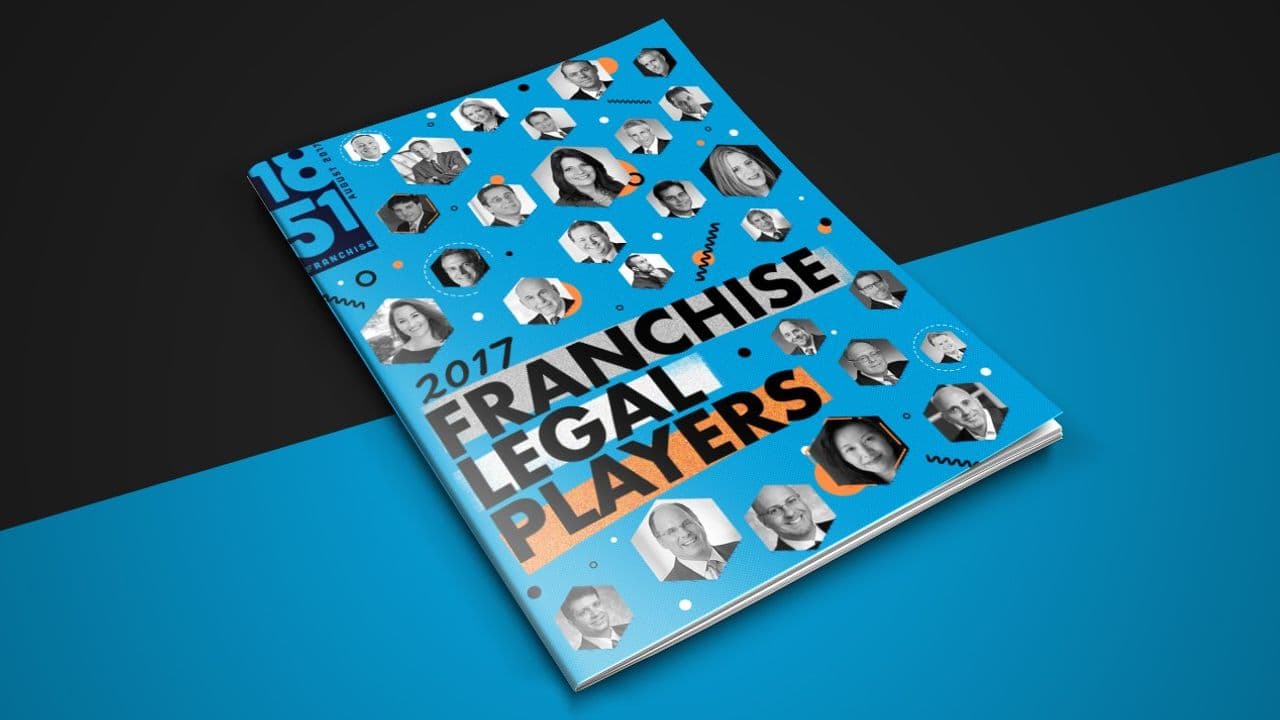Franchising Under Attack Part 5
1851 Asks the Franchise Legal Players Why
According to the International Franchise Association (IFA) nearly 4 percent of all small businesses in the U.S. are franchises; Government might not understand the true impact
It is estimated that there are more than 900,000 franchise businesses across 300 business categories in the U.S. which provide nearly 18 million jobs and generate more than $2.1 trillion to the economy. Franchising is a huge industry, yet, quite often, policymakers don’t understand the fundamentals of franchising enough to be mindful of its impact and the impact of their ideas.
1851 interviewed its 2017 Franchise Legal Players, those charged with protecting the industry from a legal standpoint, about why they believe franchising is under attack:
Mark Kirsch, Gray Plant Mooty: Obviously, the most significant current attack on franchising is the joint employer standard. Despite the recent change in the Department of Labor’s interpretation of joint employment, this issue is not going away.
A greater challenge, however, is a general ignorance regarding franchising throughout our society and economy. This is much broader than the joint employer issue, and requires a multi-prong, long-term strategy to educate policymakers (at the federal, state and local levels), as well as other business leaders, the media, educators, employees, and the public about the franchise business model.
Those of us in the industry understand the players, the stakeholders, the business relationships, the legal concerns, the financial and investment challenges, and much more. Franchising did a great job in the last 50 years of educating consumers to expect a consistent product, service, and brand image from the multiple outlets operating under the same name. But the consumers, as well as policymakers, do not understand the model, the true “small business” aspect of franchised outlets, the independence and business risk of each franchise, and the shared risk and interdependence of the franchisor and its network of franchisees.
Consequently, policymakers create laws and regulations that unfairly harm and discriminate against franchising, and the media do not have the full details and context to report on franchise issues accurately. Therefore, a long-range, sustained “education” plan is necessary to confront those challenges.
IFA’s “@OurFranchise” campaign is one such effort to develop information and educational programs for policymakers, employees of franchisees, the media, etc., to jumpstart this process. I gave a presentation on franchising at the University of Rochester’s Simon School of Business in late April. Other franchise industry leaders should, and could, conduct other outreach and education efforts. While companies, individuals, and government agencies will not always agree on matters such as the minimum wage, taxes, business investment incentives, or other issues, a better understanding of franchising and the franchise model will lead to more thoughtful and balanced debates and discussions of the issues, and will result in fewer unfair laws or unintended adverse consequences.
Harris Chernow, Reger Rizzo Darnall: Not sure I would call it “under attack” – if what is being referred to as being under attack is the joint employer issue. If it’s not that, it will be something else – it’s a product of franchising being such a significant part of the GNP and being a main staple in the international business world. Plus, agencies are looking for ways to utilize/leverage the power of franchising for what they might believe to be a benefit to a particular group, but not taking the interest to realize that it may have more harm than good, and that what might be believed to help some will actually hurt more in the long run. There will always be issues, some bigger than others, but franchising is here to stay and typically finds a way to correct those that try to “attack” the business model that plays such a significant role in today’s economy by educating them on the overall aspects of the franchise model and its global effects.
Kitt Shipe, Shipe Dosik Law: Franchising has been more highly scrutinized in recent years, but to say that franchising has been under attack is probably an exaggeration. Much of the increased scrutiny has been fueled by a complex set of facts stemming from the recent economic crisis. Shrinking tax revenue caused state and federal agencies to think creatively about other sources of revenue, while lower profits and high unemployment meant that employees were asked to do more, and work under less favorable conditions. But the scrutiny is happening across a broad range of industries, not just franchising. My experience is that the net aggregate impact of this scrutiny has not resulted in substantial changes or adversity for the vast majority of franchisors. Franchising will continue as a vibrant business model, particularly with economic pressures subsiding.
Richard Greenstein, DLA Piper: With the heightened attention related to issues of joint employer/vicarious liability, the past two to three years is the first time that I can remember franchising being scrutinized by agencies of the federal government. This is very different from the past when issues facing franchising centered mostly around the relationship between franchisor and franchisee. Even with this increased scrutiny, I am confident that the industry will continue to move forward, often itself finding the best ways to deal with the issues of the day.
MORE STORIES LIKE THIS
Former Firehouse Subs Franchisee Transitions to Business Ownership With Fresh Coat Painters
From Social Work and Telecommunications to Franchising with Seniors Helping Seniors
Pollo Campero Multi-Unit Franchisee Bringing Central American Flavor to Smyrna, Tennessee
From Friendship to Franchise: How Two Couples’ Kinship Will Bring Paris Baguette to Newton Square













